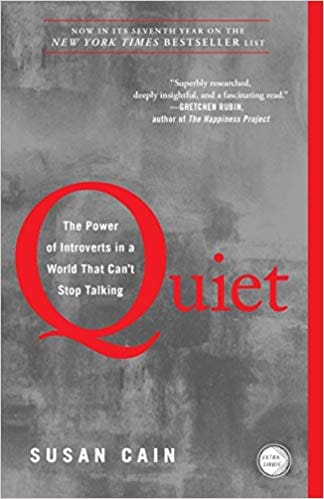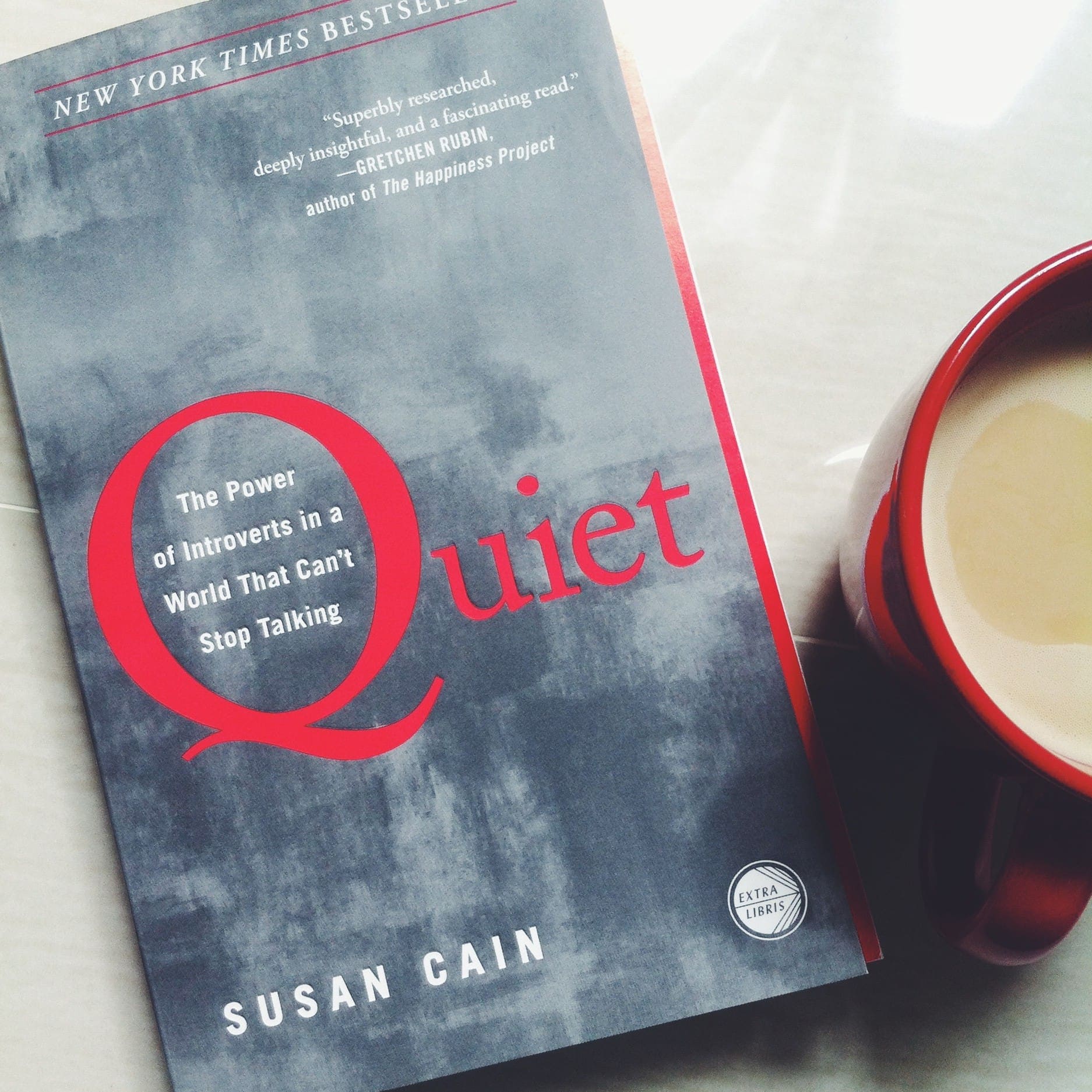#HRBookclub: Are Introverts Better Leaders? A Review of Quiet by Susan Cain
July 30, 2019 by Aley Brown
HELLO!!
As a self-declared extrovert, that is how I typically greet the outside world.
People like friendly people, right? And being extremely well-liked is an important part of being a leader, right?
Well, I wasn’t wrong. But I didn’t really have the whole story.
Until I read this book, Quiet: The Power of Introverts in a World That Can’t Stop Talking by Susan Cain.
This popular business book is all about the secret power of introverts. It was recommended to me by my CEO as a tool for my own development.
As I mentioned, I was a self-declared – and should I say – proud, extrovert. So the thought of reading a book about quiet people made me want to gag.
But I stuck with it, and man am I glad I did! Here are the five takeaways I gained from this read:
- I’m not really an extrovert. I’m more of an ambivert.
- It’s true, introverts really are better managers.
- The United States has an extroverted ideal, which isn’t cool.
- Introverts are people, too.
- How to act a little more introverted (for the benefit of your career).
Understanding Extroversion and Introversion: It’s More Complicated Than You Think
Everyone in my family and immediate friend group is really introverted. So I have always thought that I was a weird, super extrovert.
But I was wrong.
This book helped me realize that while I love being around people and going out with groups, I also really like my alone time. Like a lot.
The book has a self assessment quiz you can take to figure out just how introverted you are. And I was surprised to find that I do have some introvert traits.
For example, I love to go out with friends on the weekend, but sometimes when I’ve had a really long week, I just don’t have the energy to be around people. I would rather stay at home and read a good book. (Thinking about that right now makes me all happy and cozy.)
I also HATE when someone calls me out of the blue and I have to chat with them. Which is why I have 29 unread voicemails right now on my phone.
I also really enjoy getting to log out of all of my work systems, finding a corner in a cute coffee shop, and just really focusing in on getting work done, when the situation calls for it.
Don’t get me wrong… I still have super extroverted aspects of my personality. Like if I go a day at work without talking to someone (I work remotely), I feel like I’m about to lose my mind. Hence why I joined a coworking space.
Introverts and Management: A Surprising Revelation
But here is what I learned from this book that is really interesting. Introverts make way better managers of people that are engaged and passionate. Extroverts make way better managers of people who are disengaged, have no motivation, or have a very nonchalant mentality about work.
Here are some examples:
Jill Brown is a marketing manager with tons of ideas about how to grow her company’s lead pipeline. She is passionate about the product and the brand she is building. And enjoys coming to work every day.
Karl Johnson is a factory worker who is consistently late to work or absent. He clocks in at the last minute and always clocks out as soon as he can. He seems disengaged and isn’t committed to working on the future of the organization.
So, according to science, an introvert would be a better manager for Jill, and an extrovert would be a better manager for Karl.
Why is that?
Because when someone is motivated and passionate, they don’t need someone to throw more ideas at them, they need a good listener. Someone who will give feedback, not micromanage, and help with roadblocks along the way. They don’t need a cheerleader, they are already pumped up!
Someone who is disengaged, like Karl, would benefit from an extroverted leader who could approach them in a friendly manner, figure out what is wrong, and help to motivate them to do better. In this situation, Karl is the one who needs the cheerleader!
Our society has taught us that being an extrovert is what everyone should aspire to. We idolize extroverts for their charming-ness, sociability, and overall demeanor.
So kids who grow up thinking they don’t have these things (and adults, too) can feel pretty bad about themselves.
Working or learning in super extroverted environments can cause stress, depression, and even illness because it so strongly goes against what your body is made for.
And the sad thing is, people might not even know that this is the reason for their suffering because we have hammered extroversion into their brains as the only way to be.
This book states that at least one-third of the country is introverted. That is a lot of people who are potentially suffering trying to meet an extroverted ideal that just isn’t for them.
I really didn’t understand how introversion worked before reading this. I thought all of the people in my family and friend circle were just anti-social.
And it isn’t true.
They just need alone time to recharge and think best. And they prefer to spend time with me one on one as opposed to in a big group drinking wine. (That is where most of my big group interactions take place!)
Also, introverts aren’t incapable of acting very social when they do something they love. For example, introverts can make great salespeople when they are selling something they care about that helps recharge them.
But an introvert in a sales job where they don’t have a passion for what they are selling? Yikes. Bad match!
My Takeaways
After reading this book, I started trying to lean into the more introverted part of my personality. I wrote a sticky note on my desk that says “listen more.” When I’m on the phone with passionate people, I force myself to listen more to their ideas and focus more on nurturing them than instructing them to do something my way.
I’ve also stopped feeling guilty about having alone time to get things done. Before this book, I would always feel guilty about logging out of email and Slack to really focus on something. Because I thought something was wrong with me for the simple fact that I couldn’t focus on writing a blog while also answering questions on slack from 10 different people.
I felt guilty because of that extroverted ideal I mentioned earlier.
But now I don’t. Because I know that if I want to write the best blog possible, I need to be able to focus without getting drained from talking to people on Slack at the same time. And making the best blog possible is way more important for the growth of our marketing strategy than answering questions as quickly as possible.
In conclusion, I loved this book! I would highly recommend it to anyone who is curious about different personality types.
Do you have a book you would love for us to review? Click here to chat with me and send the suggestion.
Till next time,
A
More from Careerminds
In need of outplacement assistance?
At Careerminds, we care about people first. That’s why we offer personalized talent management solutions for every level at lower costs, globally.






